The heroines of our story, but much more important – the fight for gender equality and the fight to do what you sincerely love, at any cost, are Vera Vasović and Valentina Perović. Currently the HR manager at JAT Tehnika, but also much more important – probably one of the most capable, determined, and inspiring ladies in Serbian aviation.
Is it because of the effort to change the discriminatory practices of the then Higher Pilot School in Vršac or because one in addition to four children managed to take four masters (and one on the road)? Or because one of them was among the leaders of the first entry of a Serbian aviation organization under EASA’s regulatory jurisdiction?
Vera and Valentina are now at the zenith of their careers taking care of people in the largest Serbian MRO. Above all, they are lovers of aviation. Formally and professionally, they are an aircraft technician and mechanic, aircraft and electrical engineer, and, above all, mothers with several children. Also, both, together, are fascinating examples of how many professional varieties a professional in the aviation industry can achieve. In their case, even more interesting, within one company, in the range of 30 years.
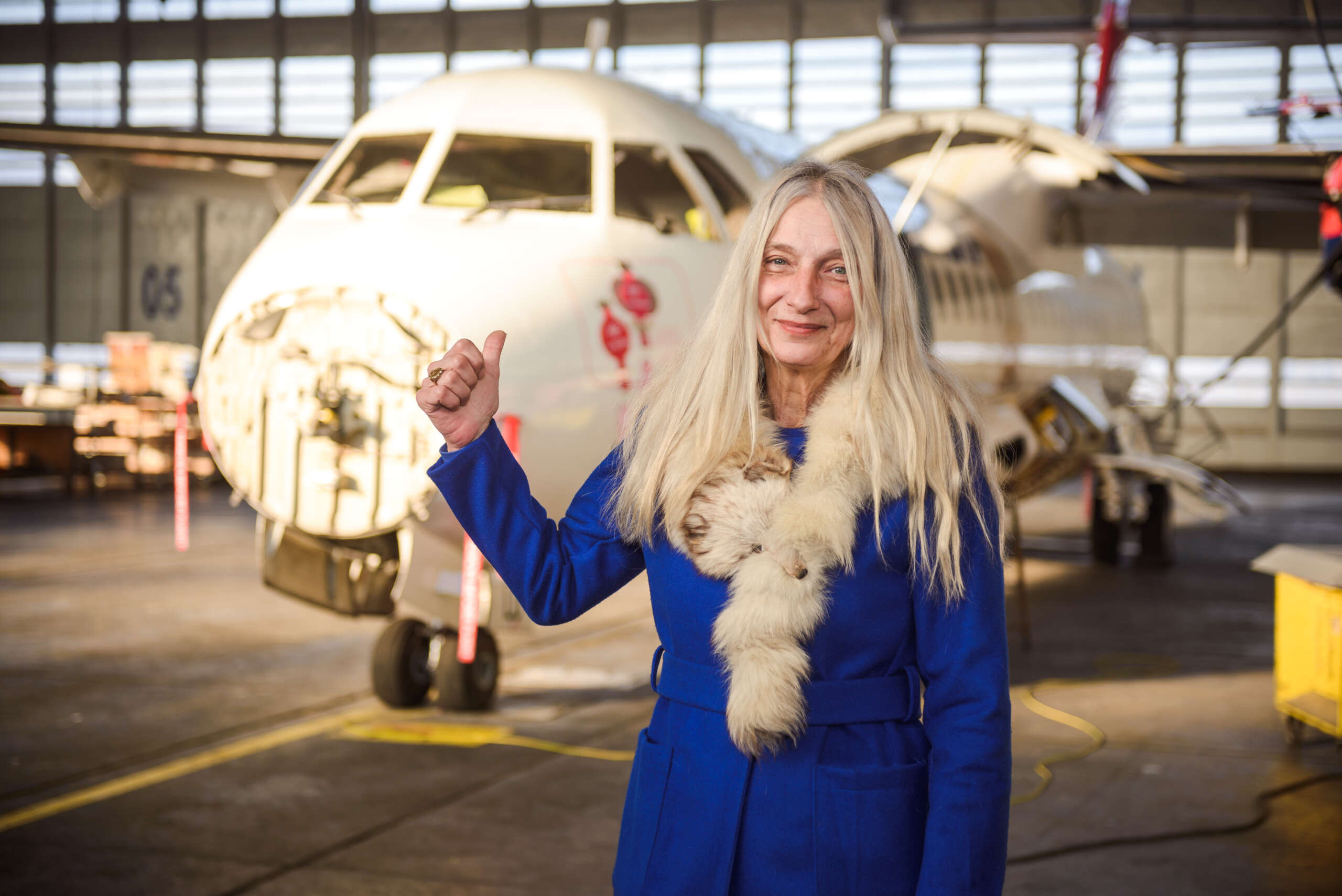
We were not born equal
While some of you who want to work in aviation sometimes whine that you don’t have enough money to become a pilot, imagine all the same just being a woman and growing up in the eighties.
Imagine ignoring the courteous respect for all those male legends pilots in Vršac and talking realistically – about how backward, some of them (in management) were and how much the whole system of the former state was set against women.
Only when you imagine all this can you begin to understand the lines below.
The desire, as with everyone, was extremely great from an early age, Vera begins her story:
– I wanted to become a pilot, in fact, we both wanted it. What happened, in the end, was that this desire made me, by fighting, become a more educated and layered aviation professional. I decided to enroll in the then high school of aviation “Petar Drapšin”, since I was in love with airplanes, ever since I was a child. My first wish was to study to become an aircraft mechanic. I started flying gliders on Lisičji Jarak earlier and flying independently at the age of 16. Somehow a natural continuation of my desire and interest became – to be able to repair the aircraft. The first obstacle I faced was that at that time it was considered that a woman could not work as an aircraft mechanic. It was inconceivable to them that the girl wanted that. The director of the school at the time called me and asked, where did I get the idea to be an aircraft mechanic as a woman? Somewhat looser “standards” were in the department for aviation technicians, there were six of us girls – Vera remembers.

– We are the same generation – Valentina continues.
– I graduated from the Nikola Tesla High School of Electrical Engineering as an aircraft electronics engineer. My generation was the second generation of aviation studies. I came to JAT Tehnika for an internship in 1979 and I have not changed my company since then. Like Vera, I also wanted to be a pilot. But I came to the aviation industry from a modest family, so the option of self-financing was not possible, and there is also a problem that existed at the time in the Higher Pilot’s School in Vršac.
SEE ALSO: The 8th of March is a special day for women in aviation. Do you know why?
– To enroll in the Higher School and pilotage and be awarded a scholarship in Vršac, you had to have served a military service. The problem was that, back then, in the early 1980s, women were not allowed to do military service – says Vera.
In the meantime, in order not to wait only for Vršac, Vera is enrolling at the Faculty of Mechanical Engineering, majoring in aviation, and Valentina is enrolling at the Faculty of Natural Sciences and Mathematics, majoring in Astronomy. They meet in Aviation Occupational Medicine while completing the medical examination required for admission to Vršac.
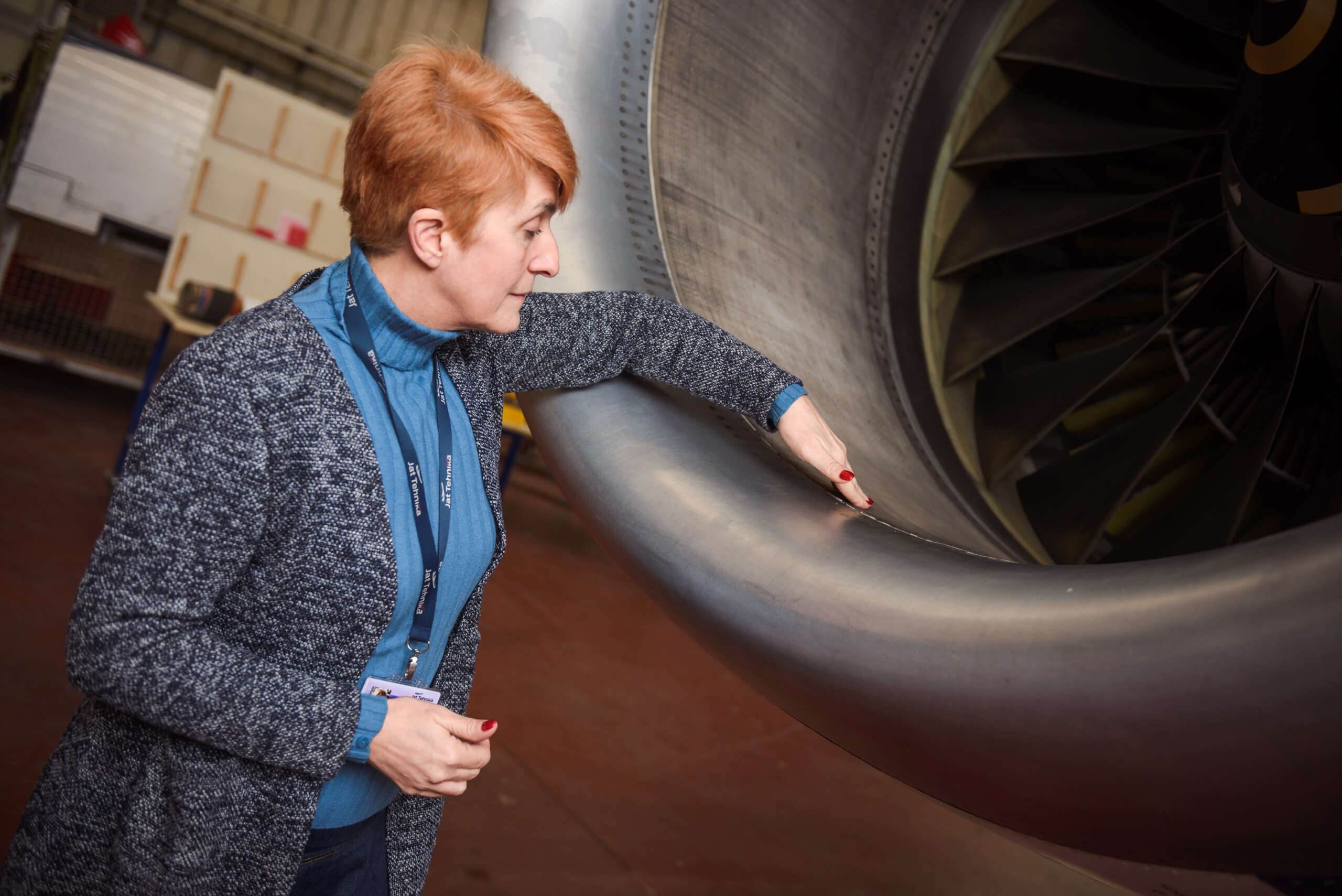
– Although I managed to submit the documentation and enter the selection process, the sabotage started only then. They tried to kick me out of the English test, they tried to kick me out of the math test. But they couldn’t get rid of me. I was admitted. – says Vera. -I started flying. After the basic flight training, there was an opportunity to apply for training as a flight instructor and get a job as a flight instructor in Vršac, which is somewhat logical – the one who gives you a scholarship gives you your first job. However, that was not the case with me, just because I was a woman. They received five men for instructors, I was second on the list. To reject me they introduced an interview category where I got zero points. That was the only way to get me off the list. In 1984, when I enrolled in Vršac, the army received a group of women for the first time. I was and remained the first and only female Vršac scholarship holder before the 1990s.
In the meantime, she graduated from the Faculty of Mechanical Engineering and got a job at JAT Tehnika.
It’s not only men who take care of the technical safety of the plane
– I started in the general aviation sector. Then I switched to Line Maintenance, then I got the job at Calibration. I asked to be transferred to “Instrument shop avionics” because I wanted to work with aircraft instruments. Before me, there were three women here, but they all turned into technicians, they didn’t stay as aircraft mechanics. At that time, there were only two of us women on the instruments. – Valentina recalls.
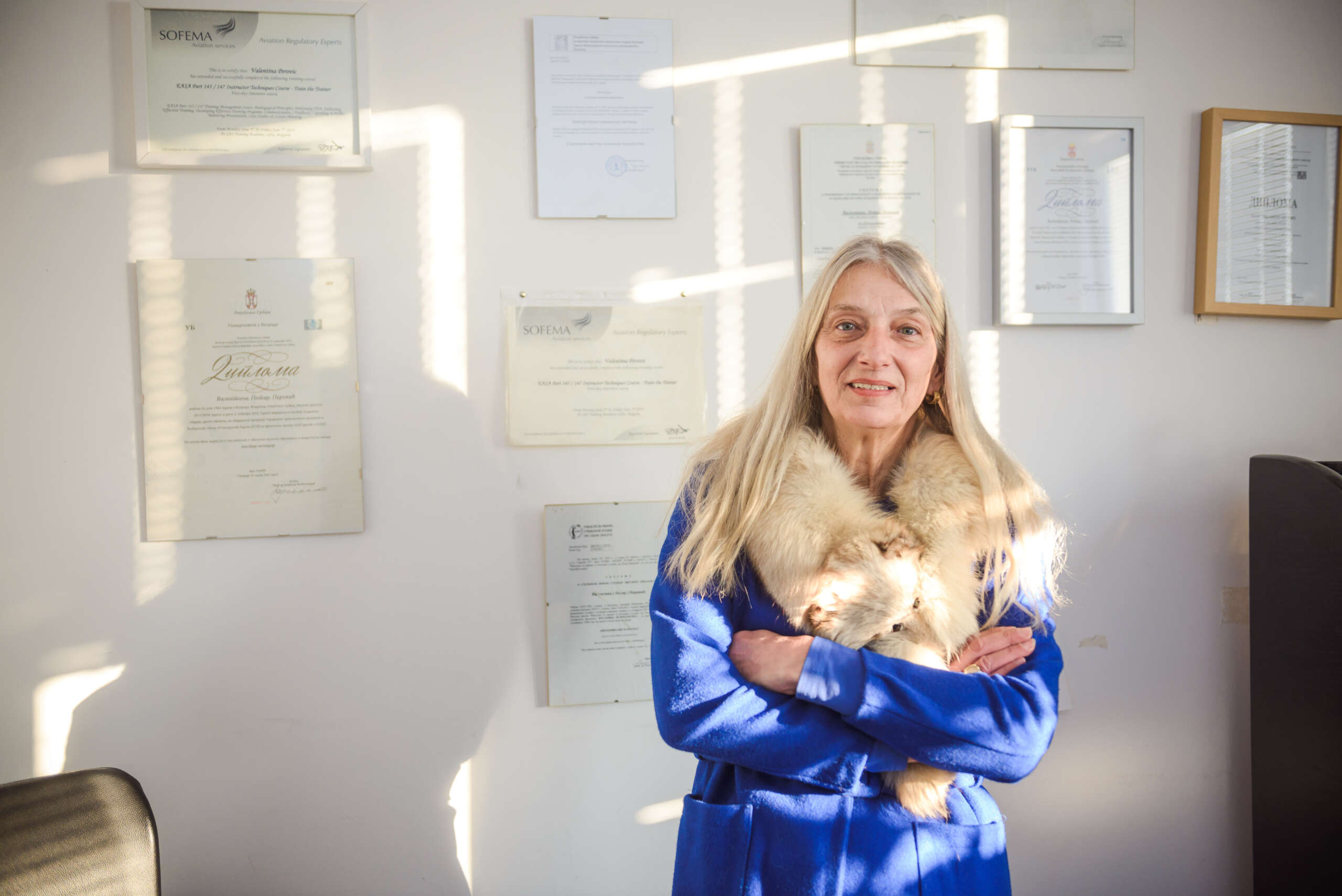
– This job used to be exciting, not a single day was the same – from the challenge of diagnosing a fault to a concrete repair. I can’t describe that time to you. I remember beautiful moments when you leave work, the sunsets, and here in front of the hangar stands a part of the JAT fleet. We only worked for them, actually, we were the same company back then. JAT had a maximum of 36 planes in the fleet at one time and it is a unique feeling – that you are part of the team that keeps them in the air.
Of course, there were also difficult moments. When, for example, they bring you a black box and a bunch of instruments from a Boeing 727 that was lost in an accident in the late eighties. I will never forget those days of stress.
Valentina’s modesty is a story unto itself. Several times we try to ask her about the complete list of formal education, which is, to say the least, impressive. She emphasizes that she spent her whole life in a workshop and that repairing instruments is her only passion, but then she lands you with a couple of official details from her biography that she doesn’t like to dwell on much.
– I graduated in psychology in parallel with the birth of my second child. Although I also started studying law school. But I finished psychology. I am also completing specialist studies in security, terrorism, and organized crime at the Political Sciences, as well as human resources at the Faculty of Organizational Sciences. Then a master’s degree in mechanical engineering, I also enrolled in doctoral studies, but I got stuck there. I recently enrolled in the Master of Laws and I hope to finish it. I think it will be my fifth master’s in a row. She also remembers that she had training in the field of machine forensics, which recommended her as a member of the company’s team that joins the investigation of passenger plane crashes if necessary.
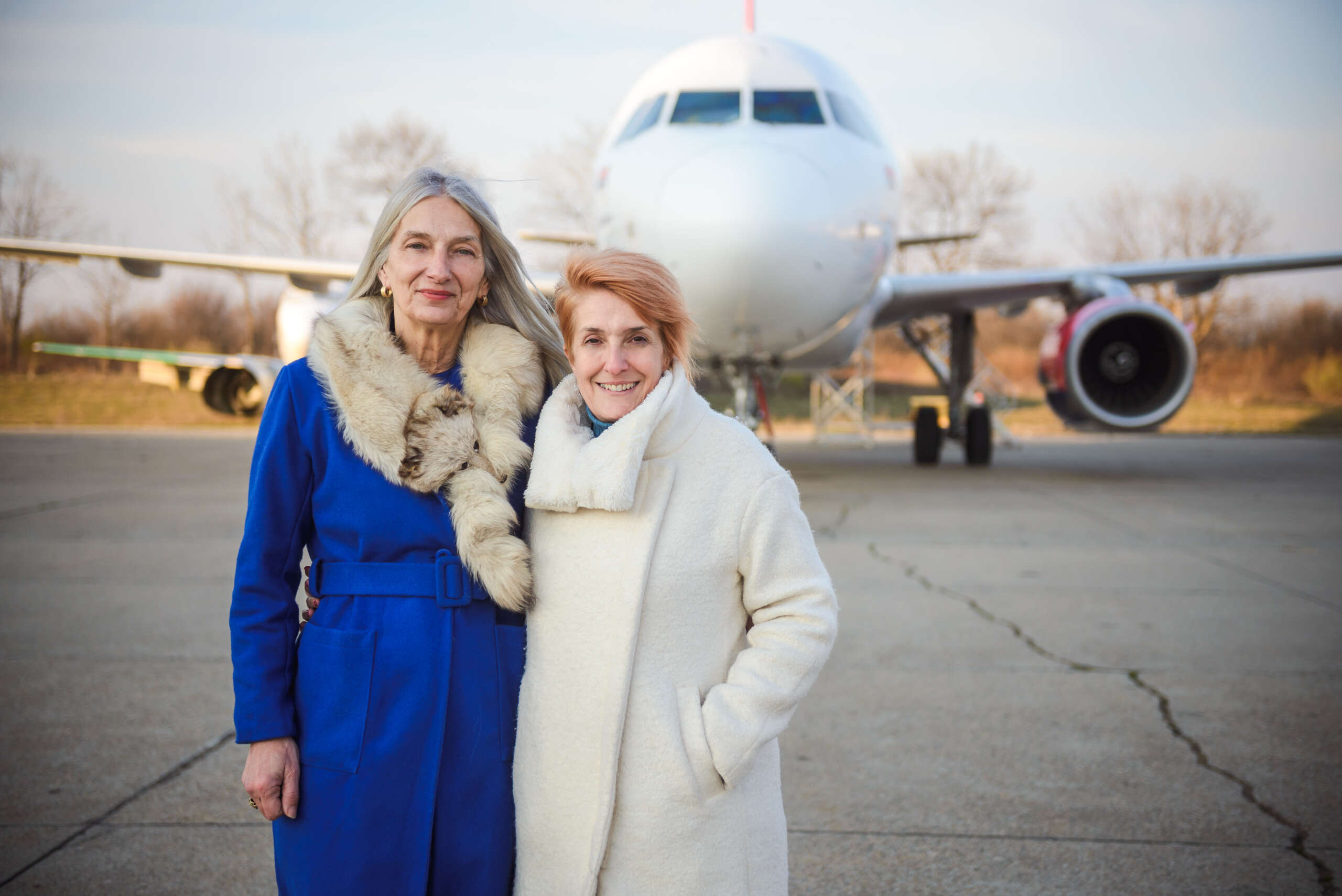
Vera joined JAT Tehnika in 1993.
– I started my career in failure analysis. It is a type of work that requires a quick response and where problems are solved ad-hoc. It is quite stressful and requires a specific set of personalities. Certainly not a job for everyone. The shifts are day-night, we communicated with planes in the air, and we went through the manuals that were then only in paper when we needed to diagnose a malfunction. After a year, I had the opportunity to go into engineering. It’s a whole other kind of business. Unlike failure analysis, it is regular office work, intellectually more demanding, while at the same time it is less exhausting emotionally. At that time, we monitored the reliability of components on a much larger sample of the then-large JAT fleet. Unlike today’s principles of MRO business, it was sometimes desirable to have spare parts in stock.
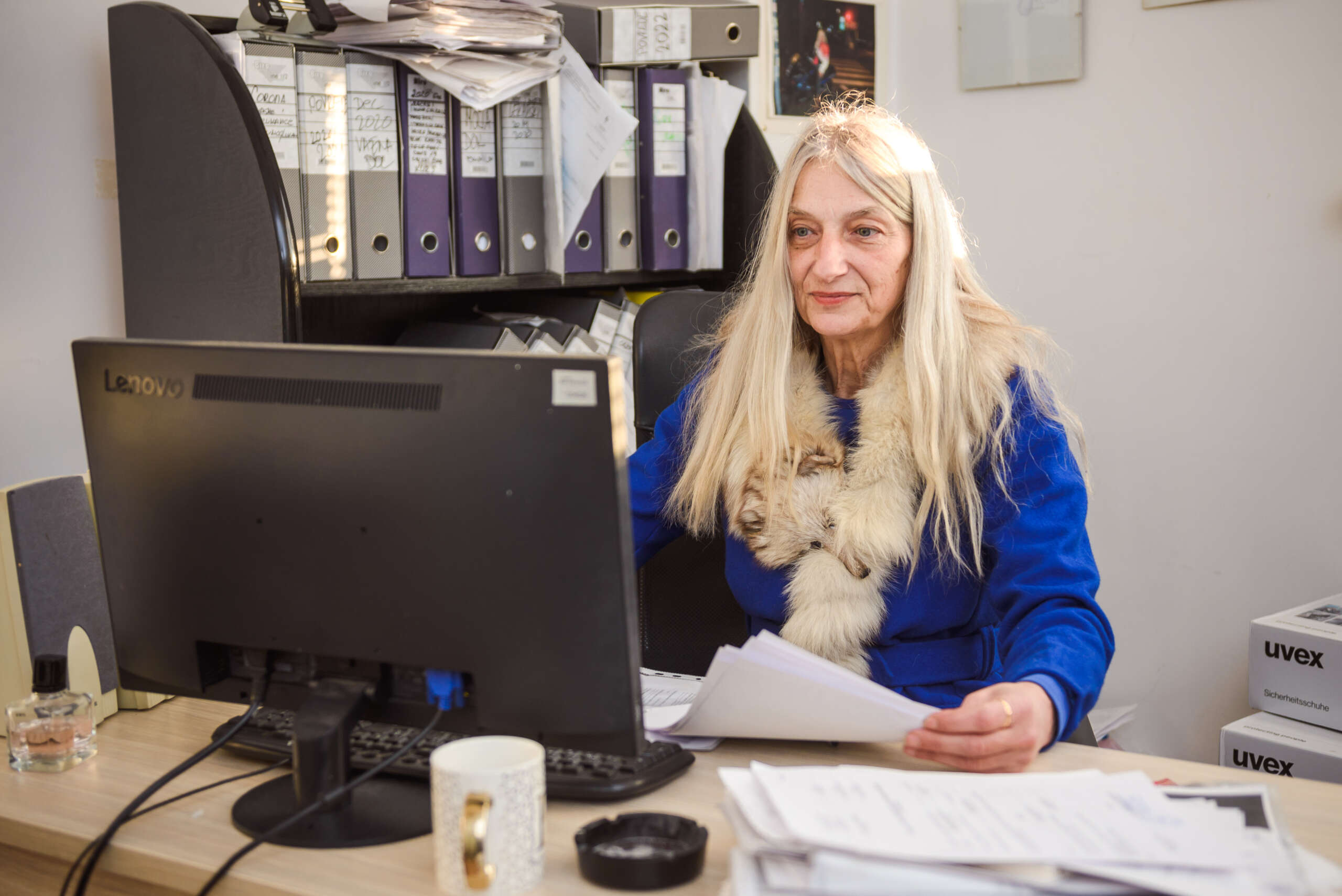
– The part of my career that I am extremely proud of was certainly my transfer to the technical documentation department. Then, in 2005, we reached a turning point when EASA began to demand that one department coordinates all updates and additions to documentation for everything related to aircraft maintenance. It is interesting that at that time, as an organization, we were certified as a “non-EU member” in EASA among the first in Serbia, if not the first. We digitized the documentation, and in 2008 we switched completely to digital documentation. At the request of the head of the department of this department, I returned to engineering. In parallel, while working, I completed postgraduate studies in human resources within industrial management. I became interested in this aspect of the job and there, together with Valentina at one point, I took over the entire HR of JAT Tehnika. I switched from technical to the social profession myself, since I wanted to learn how to communicate better with colleagues. Something completely new came out of it and then I liked it.
Caring for everyone, regardless of gender
Valentina’s career was also slowly moving toward the HR profession. She was educated in all the sciences she wanted to discover and for the first time she left the workshop for one of what can be described as more feminine jobs:
– I have already mentioned to you that I graduated in psychology, and fell in love with psychology. I left the workshop in the field of safety and health and finally became the head of that department within JAT Tehnika. I take care of procedures, and injuries of employees, I refer them to adequate health care, and I take care of the necessary equipment to protect our employees.

– Everything is interesting in its way. To be incredibly focused and accurate when repairing an analog aircraft instrument or when signing 550 instructions for the various regular and emergency health needs of your colleagues. Great responsibility is at stake, both – says Valentina and ends with another wish – to retire in another, completely new field, as a mechanic of a honeycomb structure.
– A mechanic is, after all, the most beautiful job in the world. That feeling when you disassemble a device. It’s easy to fix, but it’s hard to find what’s wrong. It’s a challenge. The hardest thing to find is that out of 1000 little things, there are only 9 of them that can malfunction.
– I would like to add that we are a company that has always had extraordinary colleagues. I agree with Valentina that diagnostics is what causes, motivates, and inspires. Sometimes a part doesn’t do what it was designed to do. It happens too. Our engineers then make a new repair, make a new procedure, and send that change to Airbus or Boeing, they approve it and solve a big problem. It has never happened that Airbus or Boeing did not approve a solution from an engineer from JAT Tehnika – Vera concludes with pride.

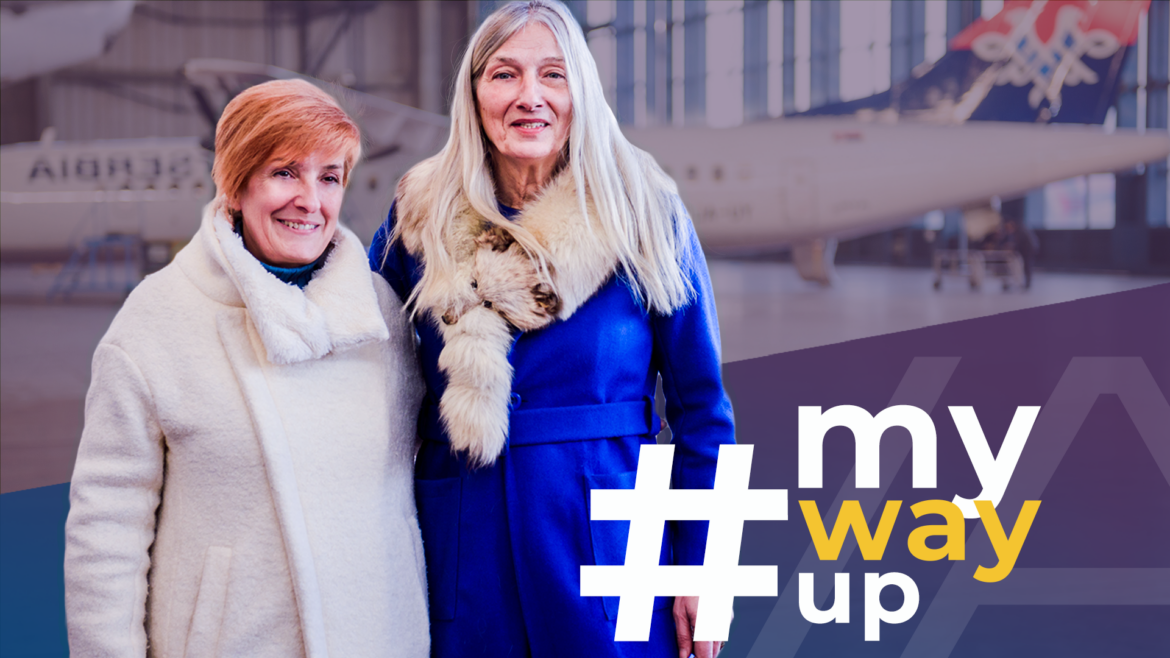
1 Comment
Zdravko Đukić
Amazing ladies and colleagues!
Comments are closed.